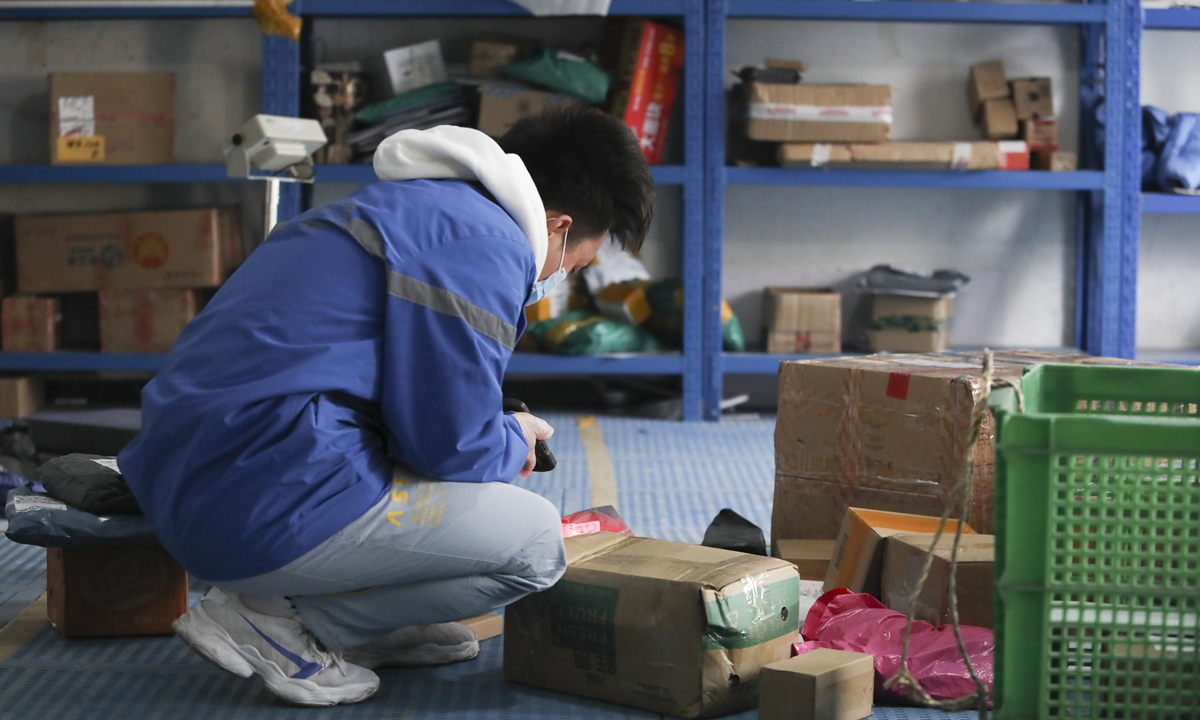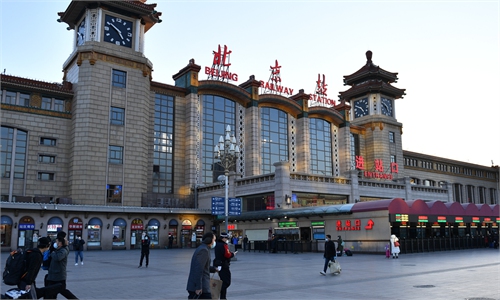
A deliveryman of ZTO Express works at a sorting center in Beijing on March 12, 2020. He wakes up at 7 am every day to deliver parcels. Photo: cnsphoto
Amid a policy suggesting people in China should stay in their working city for the Chinese New Year holidays, data from online shopping platforms showed that they are gearing up for the holiday, with orders already much higher than those of last year.
Ele.me, a domestic online food delivery platform, told the Global Times that searches for the Chinese New Year's Eve dinner are four times higher than last year.
The company is already working with online vendors regarding semi-finished products for the meals, against the backdrop of the potential market demand for holiday meals, especially among young people, according to a statement Ele.me sent to the Global Times.
To avoid further spread of the coronavirus, China has urged people to stay in their working cities during the Chinese New Year holidays in February.
This year's Chinese New Year will see some 1.7 billion trips, 40 percent lower than in 2019 but 10 percent higher than in 2020, officials said.
But there's still a demand for consumer products, such as home appliances. Sales for some appliances such as dishwashers and pasta makers are up more than 100 percent, according to Alibaba's report.
In addition, more than 20 million overseas users have gone online to buy Chinese New Year-related goods on Taobao during this year's Spring Festival shopping festival, according to Tmall Taobao World.
Chinese distillers such as Wuliangye and Niulanshan, as well as vendors of seasonal fresh fruit such as cherries and strawberries, had good sales during an online promotion for the Chinese New Year, according to a statement that Dmall, a domestic e-commerce platform under Wumart, sent to the Global Times on Tuesday.
Also, sales of gift boxes for Chinese New Year-related goods are up 76.5 percent year-on-year on Dmall.
"In previous years, physical stores were the main source of sales during Chinese New Year, but this year it will be the opposite. Affected by the epidemic, consumers prefer to buy online," said Yan Lihong, head of purchasing and marketing at Dmall.
Yan noted that the number of Dmall App products has doubled, and the variety of festival goods is broader than last year.



